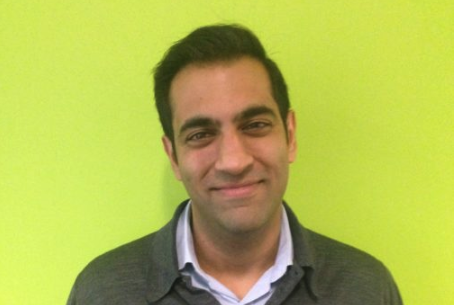Why does public healthcare in this country have a reputation for the Kafkaesque? And why do we let it?
Why are so many resigned to a sense that becoming ill – and the work involved in getting well again – means embarking on a bewildering saga of letters, trips, contradictory advice and inappropriate consultations?
Patients all too often see healthcare as something of a labyrinth: something they can’t easily navigate, something they can’t see in one place, and something they certainly can’t control. There are too many stories of people feeling passed from pillar to post, unsure if they’re even heading in the right direction, with the advice they receive in one consulting room meeting puzzled frowns in the next. Worse, they can even crash out of the system prematurely, missing any chance of the outcome they were searching for.
What this can mean is patients feeling helpless when they most need comfort and reassurance. I saw far too many examples of that anxiety during my time in the medical profession. When people get ill, they have enough to worry about – and the more they worry, the sicker they can get. Nobody should be made unwell by the systems put in place to make them well.
So how do we fix this?
We should empower them, and the clinicians charged with delivering their care, to take greater control — and have greater oversight — of the whole process. Healthcare shouldn’t feel like something that’s being done to the patient. They should be partners in it, rather than its passive recipients.
The future of healthcare then, in my opinion, is about giving them the tools to achieve this. Where people can see and comprehend all their health information at a glance, they’ll be able to make more appropriate use of the care available to them.
Are chatbots replacing doctors? It’s not what people want
Patients can’t make many of the big decisions in designing programmes of care, and we do hear some exaggerated aspirations in that direction. But what they can do is achieve greater oversight of their care, along the whole pathway, and play some part in charting its course where appropriate. The clinician should inform and steer the journey, but ultimately the person who owns it is the patient.
What we generally lack now in pursuit of this is proper integration of healthcare’s component parts — chief among these: patient data.
Fragmentary data leads to fragmentary processes, which lead to fragmentary health journeys. Where patients set out on a route designed with the best will in the world – but on partial knowledge – they can end up in the wrong place at the wrong time, and that can have serious consequences.
Digitisation means you can finally capture all the data that various appointments generate, and create a single electronic patient record for everyone. From there, you can create a complete picture of the patient’s health history; view it, with them, all in one place; and then, accordingly, set them on course to their health future.
As things stand, the patient’s notes simply don’t follow them around the system properly. And they certainly aren’t easily accessible in a form that people can comprehend easily without specialist training. What patients and clinicians need – what the whole system needs, in my view – is a way of bringing primary and secondary care, and all the associated patient records, together in one place.
That’s how to underpin a truly end-to-end patient journey: from wellness to illness, and back again, supported by the right clinicians, at the right time, in a way the patient feels comfortable with. That means integrating and digitising patient data along the whole care pathway – so we can truly join up the process of initial contact, follow-up consultations, diagnostics and care procedures.
Being a CTO for a healthcare technology company
By joining primary and secondary care digitally in the cloud, with every bit of data that goes into and flows from them – and having a single point of entry to that data – we can dramatically improve the quality of that care, through transparency and control of clinical protocols.
And by increasing the transparency of activity and outcomes from beginning to end, we reduce that sense that patients are the passive recipients of the healthcare they need – they’re not exactly in the driving seat, but they’re at least in the front, able to see where they’re going at a given point and question the route.
I also think that data should be integrated seamlessly between private and public providers – so if you go to see an ophthalmologist as part of your employee benefits scheme, I want your NHS neurologist to know about it when you go to see them. So long as patients give their genuinely informed consent to this, they are placed in a position of power which they mostly assume is out of their reach at present.
One of the great gains within reach here is bringing the expertise of consultants closer to the patient who needs them. Let’s be frank: in this country, the consultant specialist often cuts a rather remote, mysterious and inaccessible figure. If you end up seeing one at all, it can be after a long and drawn out process, with multiple trips to clinics and letters of referral to wade through before; eventually, you’re in a room with the person you need to see. That has to change.
I think that, if this can be done well in the private sector, we can provide the testbed and evidence base needed to make it work in the public sector. By not only showing that this model works – but by generating the data we need to refine and improve it over time – this can usher in a whole new way of making people well.
But that can only happen where patients are satisfied that they are in full control of this, their most deeply personal information. Without that assurance and buy-in from patients, the efficiency gains I’ve described won’t materialise at scale.
The data era is shifting: From creation to storage to readiness
I actually think the insights created through this process – on diagnoses, outcomes, everything – should be made available to innovators and regulators whose work it is to drive forward technological change in pursuit of healthier, happier people who live longer and easier lives.
But does this mean I think we should throw open the doors to the details of everyone’s most private and vulnerable moments? No – absolutely not. We can’t be cavalier about people’s private information – they won’t have it, and nor should they. The contents and outcomes of the individual sessions people undertake must remain confidential and anonymous.
What interests the sector as a whole are trends. With that knowledge, medical data becomes far less of a disjointed ocean of incomprehensible titbits and inaccessible silos. It becomes a source of learning that we can truly comprehend – something we can build on, and build from.
So we need to insist on ensuring the patient retains full ownership of their personal data – but that the anonymous insights gained are available to all. By providing that dynamic source of data and intelligence, we aim to equip anyone with the goal of making people well with the material they need to do it.
So those of us doing this for real should be sharing our learnings, with everyone and anyone whose work it is to make people well when they most need help. That’s what the vast majority of people in this sector get up to do in the morning – and we can’t let the constraints of legacy systems get in the way of them doing so.

Written by Dr Bayju Thakar is a former NHS doctor and founder of the digital health company Doctor Care Anywhere







